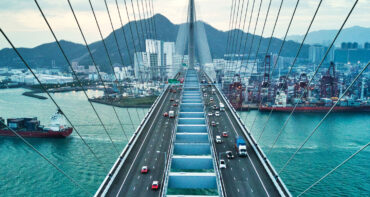
New research from IMD Professor Niccolò Pisani and University of St. Gallen Professor Simon Evenett reveals a very limited retreat from Russia of firms based in the European Union (EU) and G7 countries. Their findings challenge the narrative that there is a vast exodus of Western firms leaving the market. In effect, many firms headquartered in these nations have resisted pressures from governments, the media, and NGOs to leave Russia since the invasion of Ukraine.
EU and G7 companies
When Russia invaded Ukraine, a total of 2,405 subsidiaries owned by 1,404 EU and G7 companies were active in Russia. Fast forward to late November 2022, the research team of Evenett and Pisani found that that less than 9% of this pool of companies had divested at least one subsidiary in Russia. These divestment rates barely changed during the fourth quarter of 2022.
Confirmed exits by EU and G7 firms that had equity stakes in Russia account for 6.5% of total profit before tax of all the EU and G7 firms with active commercial operations in Russia, 8.6% of tangible fixed assets, 8.6% of total assets, 10.4% of operating revenue, and 15.3% of total employees. These findings mean that, on average, exiting firms tended to have lower profitability and larger workforces than the firms that remain in Russia.
More US firms have left Russia
Since the Russian invasion of Ukraine, there have been more confirmed exits by foreign firms headquartered in the United States than those based in the EU and Japan. Still, the results imply that fewer than 18% of US subsidiaries operating in Russia have been completely divested since the invasion of Ukraine. In contrast, 15% of Japanese firms have divested and only 8.3% of EU firms have divested from Russia.
Of those EU and G7 firms remaining in Russia, 19.5% are German, 12.4% are American owned, and 7% are Japanese multinational firms. These findings call into question the willingness of Western firms to decouple from economies their governments now deem to be geopolitical rivals. The study’s findings are a reality check on the narrative that national security concerns and geopolitics are leading to a fundamental unwinding of globalization.
The study is available as a download.



